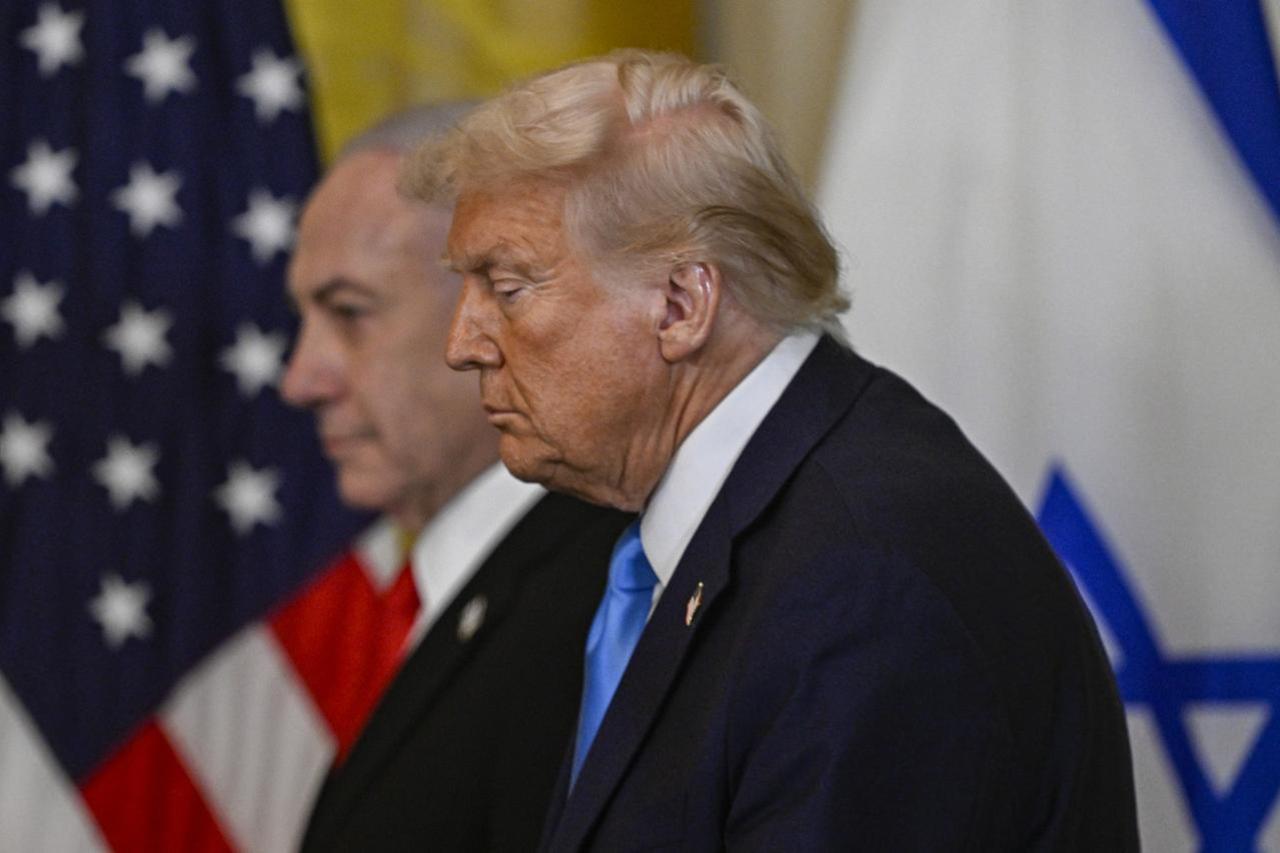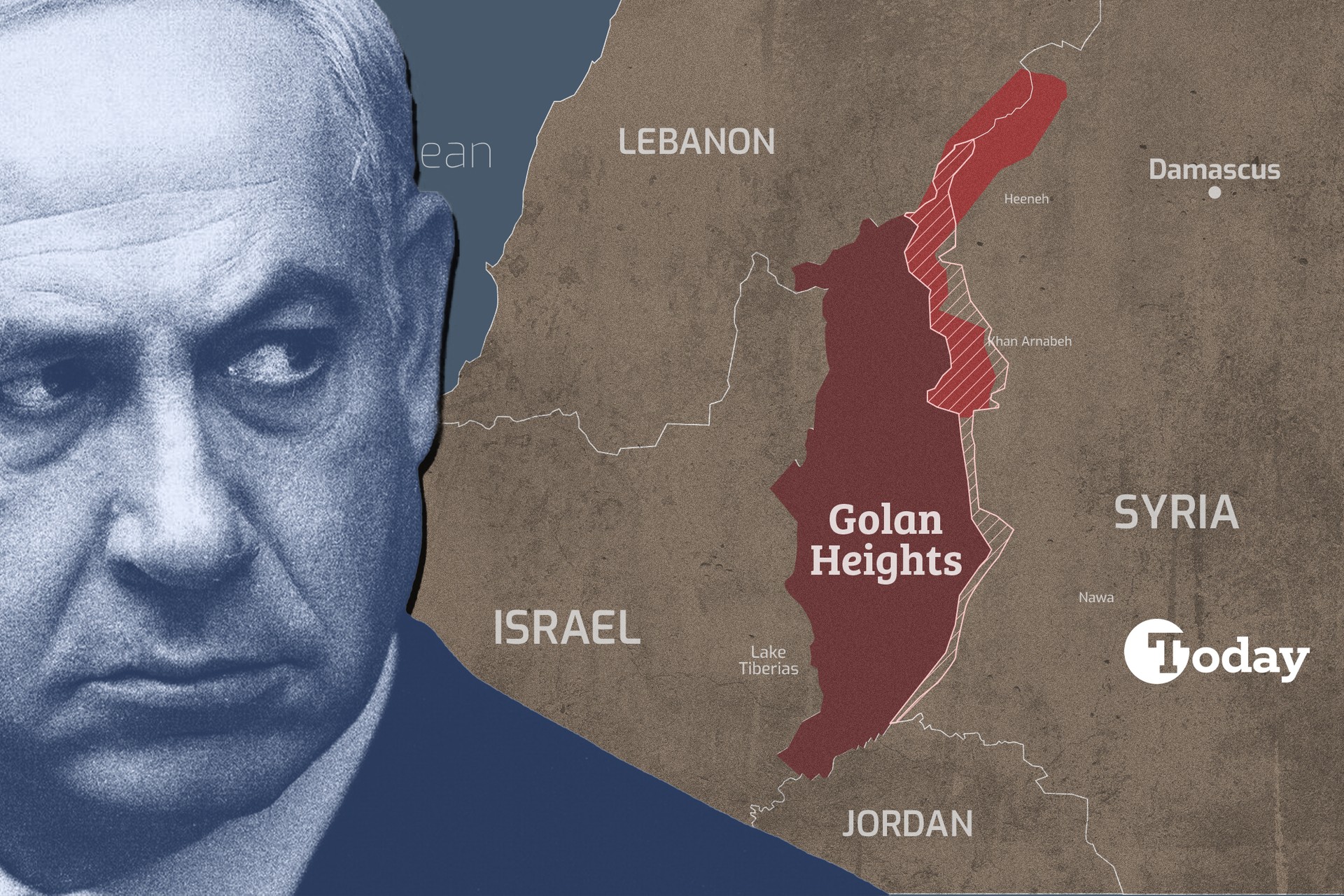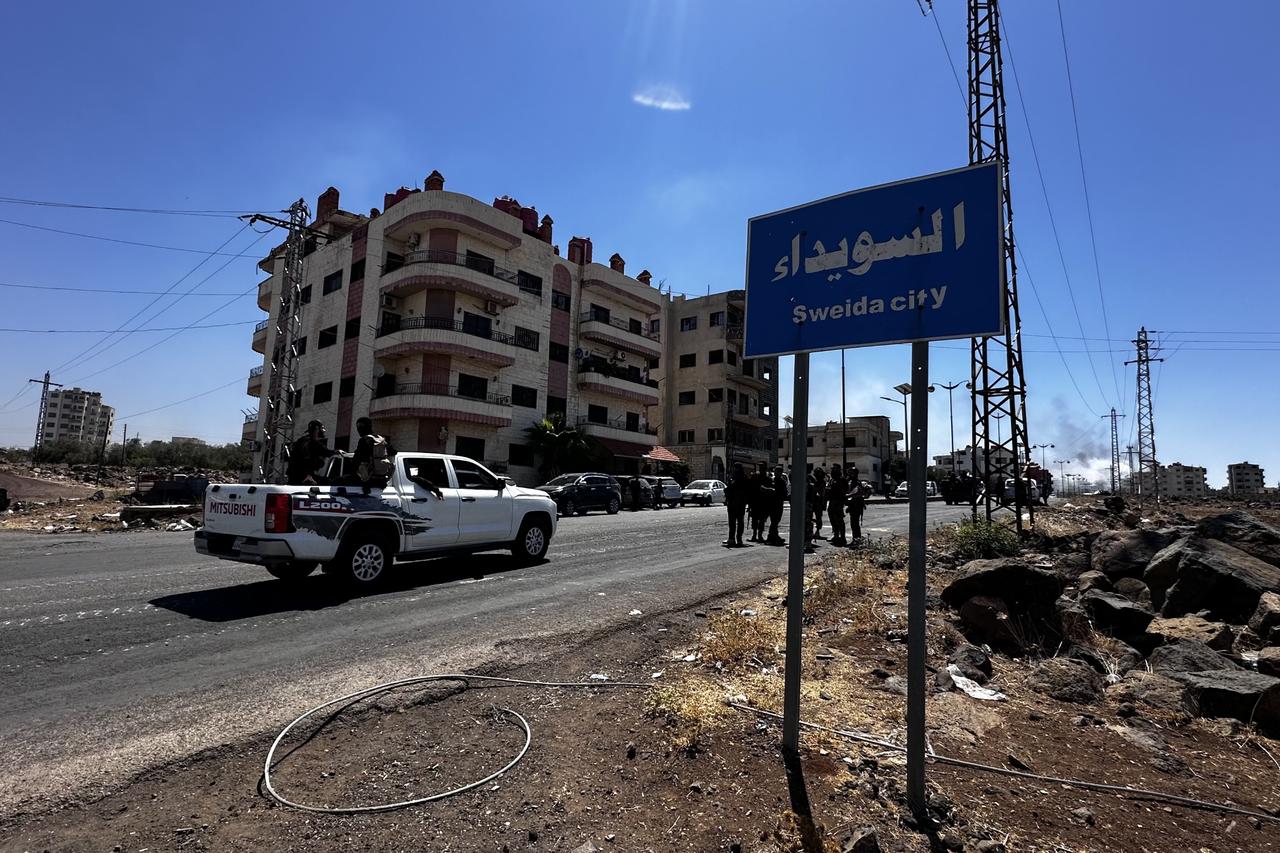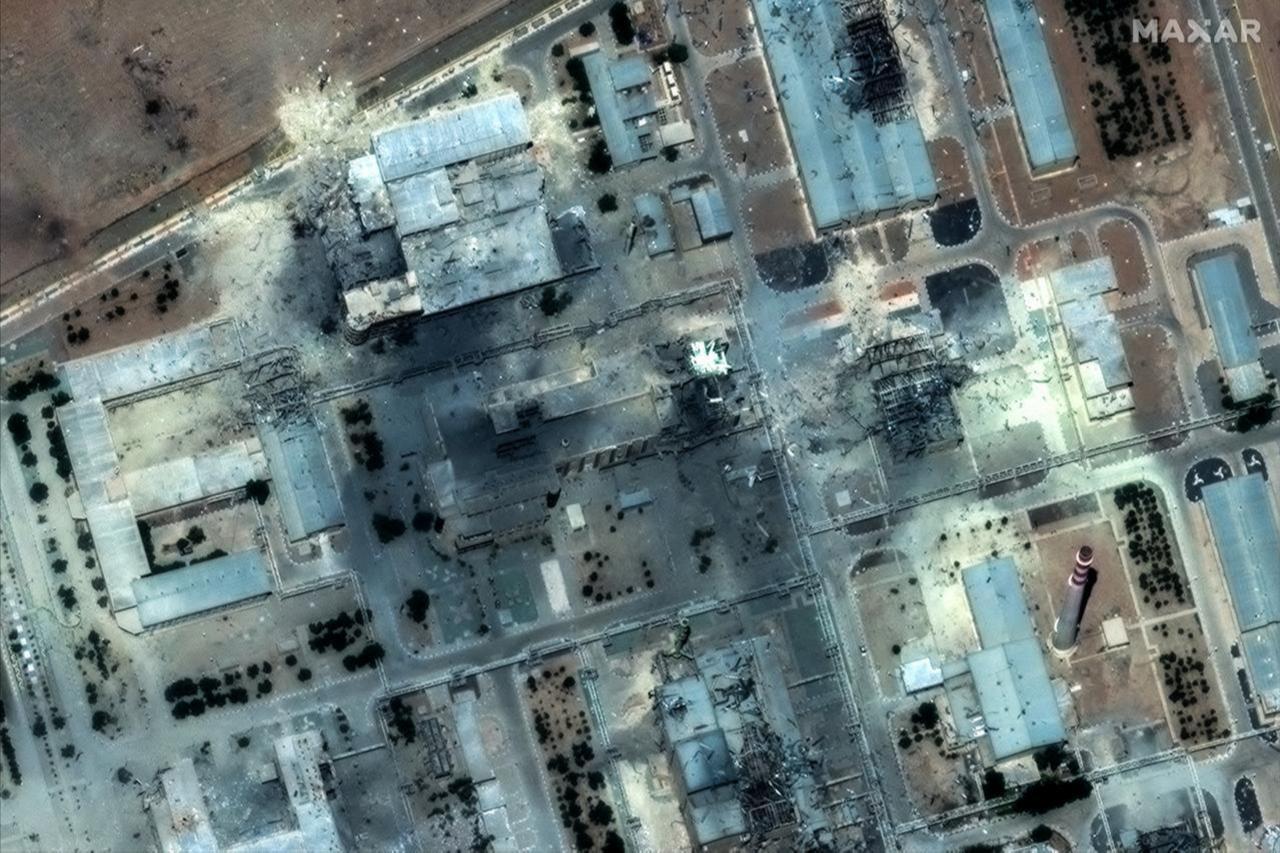
Just days before Israel's predatory F-35s tore through the skies over Damascus, a fragile glimmer of hope for peace in the Middle East seemed tantalizingly close. U.S. Special Envoy Tom Barrack, doubling as Ambassador to Turkey and the administration's Syria point man, was tirelessly orchestrating secretive back-channel negotiations between two long-standing adversaries: Syria and the aggressive Israeli regime.
The Syrian government, under interim President Ahmed al-Sharaa- a former Islamist militant who has evolved into a pragmatic statesman- had boldly signaled its willingness to ink a non-aggression pact with Israel. Even Israeli Foreign Minister Gideon Sa’ar, in a rare moment of apparent sincerity, publicly invited Syria into the so-called “peace and normalization circle in the Middle East.”
By July 12, credible leaks indicated that a breakthrough was imminent: al-Sharaa and Foreign Minister Asaad al-Shaibani, desperate for security assurances, reconstruction funds, and foreign investment amid Syria's post-war ruins, had allegedly held direct talks with Israeli officials in Azerbaijan. U.S. President Donald Trump, ever the opportunist in his quixotic pursuit of a Nobel Peace Prize, personally convened with al-Sharaa in Riyadh before swiftly rolling back decades of crippling sanctions, wagering heavily on Syria's revival and its integration into a U.S.-aligned regional order.

At the heart of this American blueprint lay the forging of a cohesive, centralized Syrian state. Barrack, leading this Sisyphean effort, focused on eradicating any seeds of division. His most explosive challenge? Integrating the PKK-led Syrian Democratic Forces (SDF)- the U.S.'s loyal boots-on-the-ground partners in dismantling ISIS- into a unified Syrian national army. In heated Damascus sessions earlier this month, Barrack delivered an ultimatum to SDF's Mazloum Abdi: “One country, one army, one people.”
He summarily rejected PKK pleas for federalism or independent military units as reckless and divisive, declaring flatly that “in all of these countries what we learned is federalism doesn't work.” This push for singular military authority underpins the U.S. strategy to avert Syria's fragmentation and cultivate a reliable ally for broader peace, including the elusive normalization with Israel.
Yet, the outbreak of sectarian strife in Syria’s Druze stronghold of Suwayda on July 11 handed Israeli Prime Minister Benjamin Netanyahu a golden pretext to shatter this delicate momentum with his trademark belligerence.
As skirmishes ignited between Druze militias and Bedouin tribes, the Syrian government stepped in to quell the unrest- reportedly alerting Israel beforehand about troop deployments to underscore that no threat was aimed at its southern foe. Sources indicate Damascus misinterpreted the signals, assuming tacit approval from both Washington and Tel Aviv, buoyed by U.S. rhetoric favoring a strong central government and nascent bilateral security dialogues. But Israel, ever eager to exploit chaos for territorial and strategic gains, seized the moment to unleash hell.
Defense Minister Israel Katz cynically packaged the ruthless airstrikes on Syrian tanks- and later, brazen assaults on Damascus itself- as a righteous duty to shield the "persecuted" Druze minority, a community Israel opportunistically parades as kin due to its presence within its own borders, including in the IDF. “The regime sent troops south of Damascus...and began slaughtering the Druze,” Netanyahu thundered, mere hours after Israeli munitions ravaged the Syrian Army's General Command Headquarters.
Israel's predatory incursions- invading Syrian soil and unleashing hundreds of airstrikes since Assad's ouster, culminating in these bombings amid critical talks- deliberately sabotage U.S. objectives by thwarting the emergence of a sovereign, unified Syria that could secure its southern frontiers and serve as a cornerstone for American-led stability.

Ironically, the Druze population Netanyahu pretends to champion overwhelmingly spurns his paternalistic meddling. Two of Syria's three paramount Druze spiritual leaders- Sheikhs Hamoud al-Hanawi and Youssef Jarbouh- fiercely affirm their Syrian loyalty, demanding safeguards from Damascus, not foreign invaders. In the wake of the Suwayda turmoil, Sheikh Jarbouh issued a stark rebuke: solutions must originate internally, and “any attack on the Syrian state is an attack on us…we are part of Syria.”
Among Druze elders, only the outlier Sheikh Hikmat al-Hijri endorses Israel's interference, deriding the government as “terrorist criminal gangs”- a fringe stance repudiated by his own people. Laith al-Balous, head of the revered “Rijal al Karama” (Men of Dignity) militia- forged in the civil war to shield Druze from both Assad's tyranny and jihadist threats- blasted al-Hijri on Al Jazeera: “There is one of the leaders who took the sect to another direction. We, as the people of the Suwayda Governorate, reject it and do not accept it,” vowing solidarity with “our Syrian people.”
Israel's hollow claim to Druze guardianship crumbled spectacularly on July 18, when- fresh off pulverizing Syria’s Defense Ministry and presidential palace- an anonymous Israeli official conceded to Reuters that only Damascus could douse the flames: "In light of ongoing instability," Israel would permit "limited entry of Syrian internal security forces into Sweida district for the next 48 hours."
This humiliating flip-flop exposed the Syrian government's irreplaceable role in mediating between feuding Bedouin and Druze factions- the very clashes that lured Syrian troops in, only for Israel to weaponize them as justification for its onslaught.

The Trump administration, caught off-guard by Israel's reckless barrage, raced to mitigate the damage. Officials confessed they had implored the Israelis to “stand down and take a breath,” advocating dialogue over destruction. Secretary of State Marco Rubio lambasted the strikes as a perilous obstacle to a “peaceful and stable Syria,” squandering U.S. investments in al-Sharaa’s regime. State Department spokesperson Tammy Bruce emphatically stated that “the United States did not support recent Israeli strikes.” Barrack escalated the rebuke, aligning squarely with Syria: the government “has conducted themselves as best they can…to bring a diverse society together,” while Israel’s assault “came at a very bad time."
These strikes unmask Israel's insidious playbook, reminiscent of Netanyahu's relentless undermining of U.S.-Iran nuclear diplomacy- lobbying to torpedo talks, paving the way for unilateral aggression that dragged America into quagmires. The hypocrisy is staggering: Israel dangles Abraham Accords bait for Syria one week, then bombs its forces the next, all while Sa’ar- who once smeared al-Sharaa’s administration as “a bunch of jihadists”- pushes for Syria's sectarian carve-up in February 2025, advocating federalization to perpetuate weakness and even courting Russian bases to offset Turkey. This directly clashes with the unified Syria championed by Damascus, its neighbors, and Washington.
Israel's belligerence, timed perversely with U.S. sanction relief and efforts to consolidate Syrian military control, corners the Trump team, broadcasting Tel Aviv's arrogant bid to dictate Syria's fate at the expense of American interests. Each Israeli bomb on Damascus doesn't just demolish infrastructure; it erodes the foundations of a sovereign regional order rooted in stability and cooperation, highlighting a toxic rift that's increasingly burdensome for the U.S. and the Middle East at large.
The litmus test for Trump's White House? Whether it can finally muzzle Israel's destructive impulses and nurture its vision of a resilient, integrated Syria- or watch Netanyahu's warmongering consign yet another peace process to the ashes.